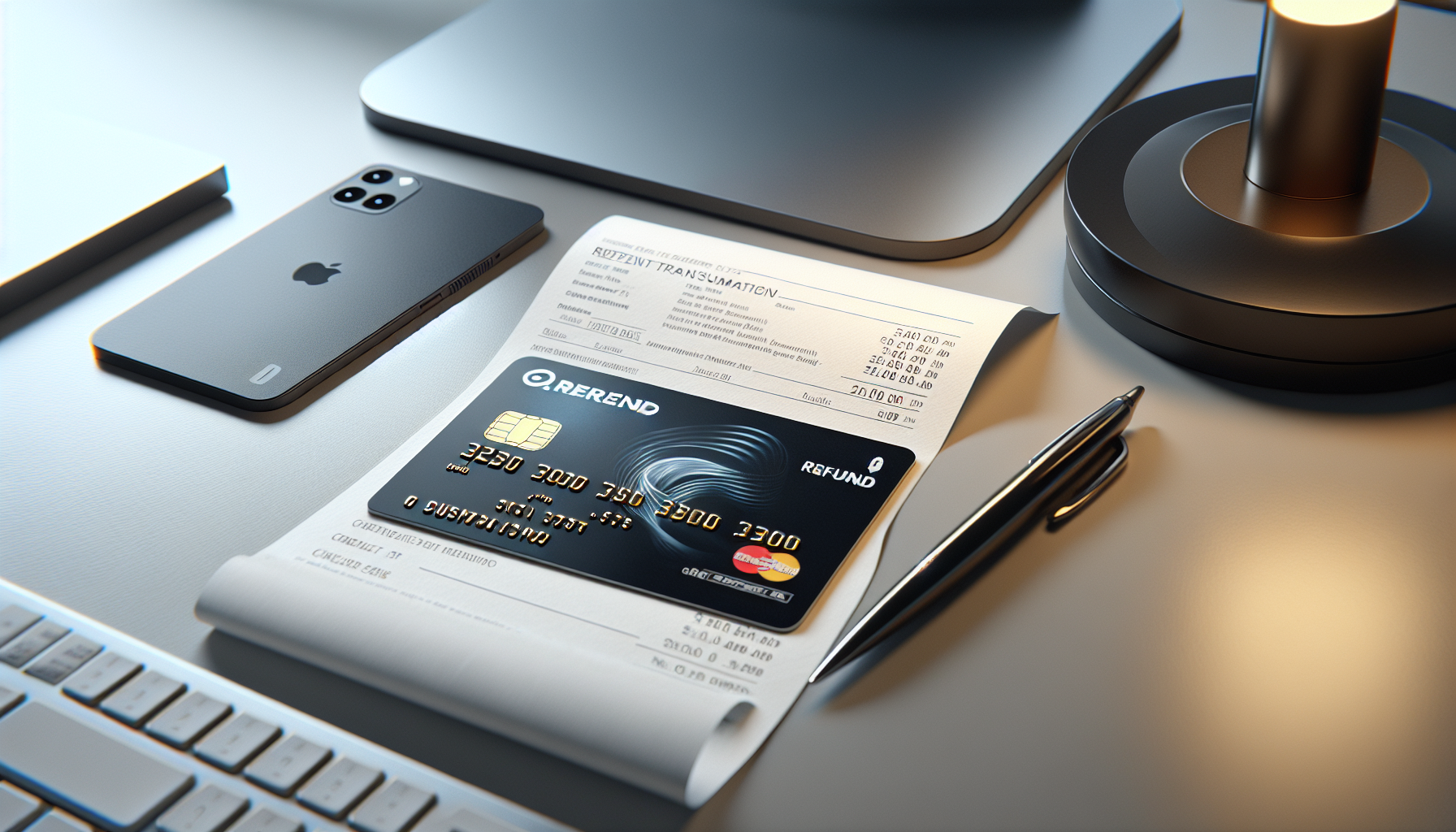What Happens When You Get a Refund on a Credit Card with Zero Balance
How Credit Card Refunds Work
When you make a purchase with a credit card and later decide to return the item, the merchant will process a refund to your credit card account. This refund is not an immediate process and may take some time to appear on your credit card statement, typically between 5 to 14 business days.
Credit card refunds work differently than refunds to a debit card or cash. When you receive a refund on a credit card purchase, the money is credited back to your credit card account by the credit card issuer, rather than being directly refunded to you. This refund will appear as a credit on your account, reducing your outstanding balance.
The Credit Card Refund Process
The credit card refund process begins when you return an item or cancel a service that you previously paid for with your credit card. The merchant then processes the refund with your credit card issuer, which can take a few days to reflect on your account.
The timeline for a credit card refund varies depending on the merchant and your credit card issuer. Some merchants may issue a refund immediately, while others may take several days to process the request. Once the refund is processed by the merchant, it can take an additional 1-3 business days for the credit to appear on your credit card account.
Differences Between Credit and Debit Card Refunds
While credit card refunds are processed through the credit card issuer, debit card refunds are handled differently. When you make a purchase with a debit card, the funds are immediately withdrawn from your linked checking account. If you return an item or cancel a service paid for with a debit card, the refund will be credited back to your checking account.
Another key difference is that credit cards offer more robust consumer protections compared to debit cards. For instance, if you need to dispute a fraudulent transaction or if a merchant refuses to issue a refund, you can initiate a chargeback with your credit card issuer. Debit cards, on the other hand, do not offer this level of protection.
Impact of Refunds on Credit Card Balance and Credit Score
When you receive a refund on your credit card, it effectively reduces your outstanding balance. This can be beneficial if you’re carrying a balance from month to month, as it will decrease the amount of interest you’ll accrue. However, refunds can also impact your credit utilization ratio, which is a key factor in determining your credit score.
How Refunds Affect Credit Card Balance
When a refund is processed on your credit card, it will appear as a credit on your account, reducing your outstanding balance. If the refund amount is greater than your existing balance, it will result in a negative balance on your credit card.
For example, let’s say your credit card balance is $100 and you receive a refund of $150. This will result in a negative balance of -$50 on your credit card. This negative balance will be applied to future purchases you make with the card.
Potential Effects on Credit Utilization Ratio and Credit Score
Your credit utilization ratio is the amount of credit you’re using compared to your total credit limit. It’s generally recommended to keep your credit utilization below 30% to maintain a good credit score. When you receive a refund on your credit card, it can temporarily lower your credit utilization ratio, which could give a slight boost to your credit score.
However, the timing of when the refund is reported to the credit bureaus is important. Most credit card issuers report your account activity and balance to the credit bureaus once a month, typically on your statement closing date. If the refund is processed after your statement closes, it won’t be reflected in your credit utilization until the following month.
| Scenario | Impact on Credit Score |
|---|---|
| Refund processed before statement closes | May temporarily lower credit utilization and boost credit score |
| Refund processed after statement closes | No immediate impact on credit score; will be reflected in the following month |
Refunds on Credit Cards with Rewards and Zero Balance
If you have a rewards credit card, you may be wondering how a refund will impact your earned rewards or welcome bonus. Additionally, if the refund results in a negative balance on your credit card, you may have questions about how to access those funds.
Impact on Earned Rewards and Welcome Bonuses
When you make a purchase with a rewards credit card, you typically earn points, miles, or cash back on that purchase. If you later return the item and receive a refund, the rewards earned on that purchase will usually be deducted from your rewards balance.
Similarly, if you’re working towards a welcome bonus that requires you to spend a certain amount within a specific timeframe, a refund could potentially disqualify you from earning the bonus. For example, if you need to spend $3,000 in the first three months to earn a bonus and you return an item that lowers your total spend below that threshold, you may no longer be eligible for the bonus.
Options for Negative Balance on Credit Card
If a refund results in a negative balance on your credit card, you generally have two options:
- Keep the negative balance on your account and apply it towards future purchases. The negative balance will reduce the amount you owe on your next credit card bill.
- Request a check from your credit card issuer for the amount of the negative balance. Most issuers will send you a check for the negative balance if you request it.
It’s important to note that a negative balance on your credit card doesn’t earn interest. Your credit card issuer isn’t required to pay you interest on a negative balance, so it’s generally best to either apply the negative balance to future purchases or request a refund check.
See also:

